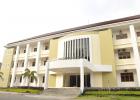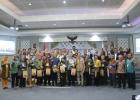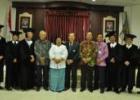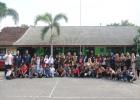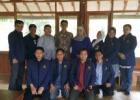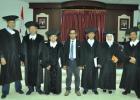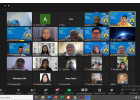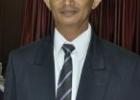You are here
“National Examinations through the Lens of Equitable and Humanistic Education” Offers New Insights into Educational Evaluation
Primary tabs
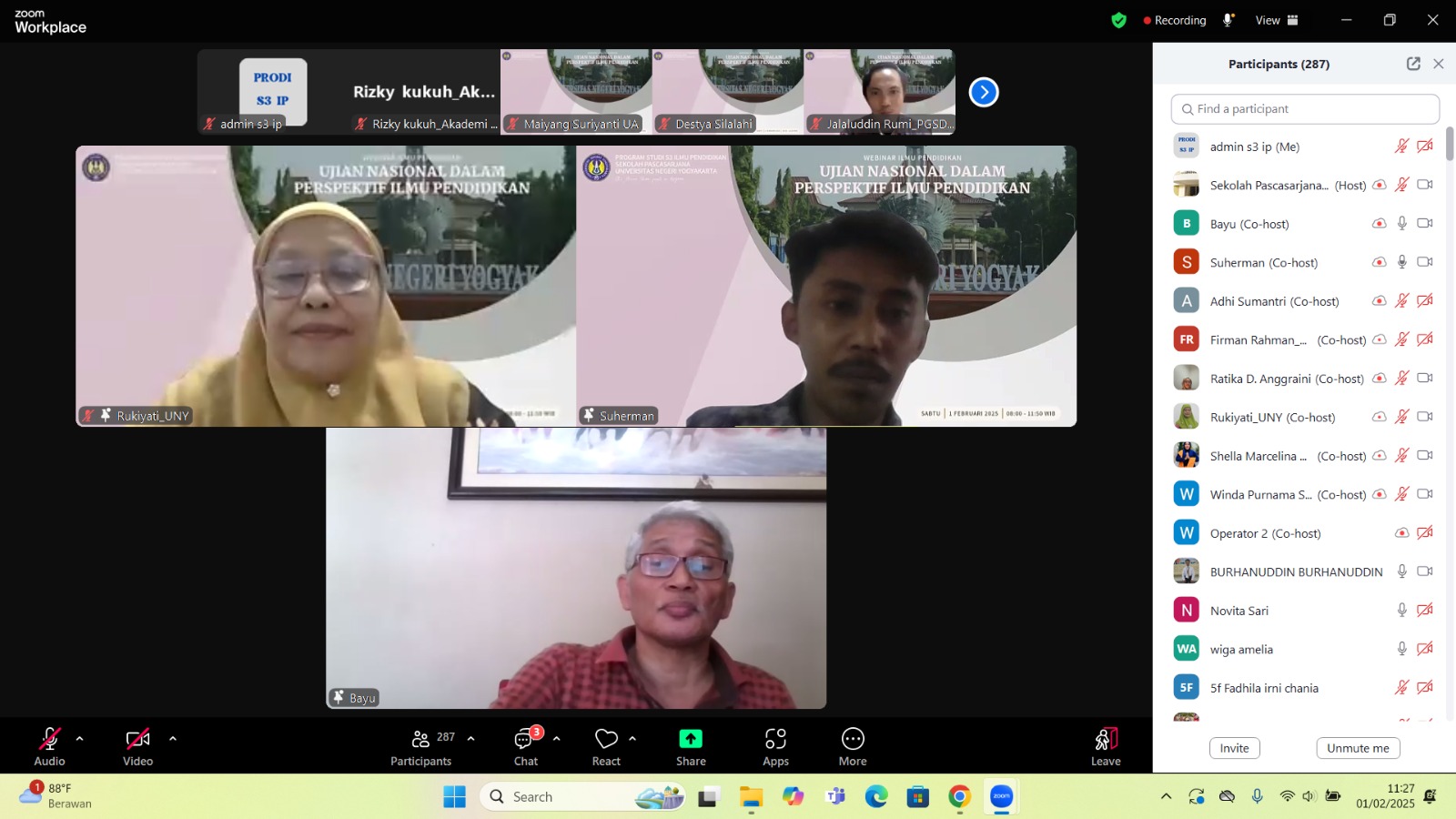
18/02/2025 - The Graduate School of Universitas Negeri Yogyakarta (UNY) held a webinar titled “National Examinations through the Lens of Equitable and Humanistic Education.” The event featured two main speakers: Prof. Dr. Sugeng Bayu Wahyono, M.Si., in the first session, and Dr. Rukiyati, M.Hum., in the second session. The webinar was moderated by Suherman, S.Pd., M.Pd., with Shella Marcellina, S.Pd., M.Pd. serving as the Master of Ceremony.
In the first session, Prof. Sugeng Bayu Wahyono discussed the role of the National Examination (UN) in education policy and its implications for educational equity in Indonesia. Since its discontinuation in 2021, the UN is planned to be reinstated in the 2025/2026 academic year. He emphasized that national evaluation policies should align with the principles of equitable education to avoid deepening social disparities.
Prof. Sugeng highlighted the evolution of Indonesia’s educational evaluation system, from the Ujian Penghabisan during the Soekarno era to EBTA in the 1970s. He argued that constructivist educational paradigms, which focus on deep learning and meaningful understanding, are more relevant than positivist, nationally standardized exams like the UN. He also warned that reinstating the UN could conflict with education decentralization and hinder innovation in teaching. Education, he emphasized, should accommodate diverse student potentials, not merely measure academic achievement in a few subjects.
The second session presented a humanistic perspective on education delivered by Dr. Rukiyati. She stressed that education should focus on holistic personal development rather than exam results alone. Drawing on Driyarkara's concepts of hominization and humanization and Notonagoro's view of humans as multidimensional beings, she explained that academic evaluation should be continuous and reflect students’ diverse potentials, not only cognitive abilities.
Dr. Rukiyati highlighted the limitations of the UN in assessing creativity, social skills, and multiple intelligences. As an alternative, more flexible assessment systems, such as project- and portfolio-based assessments, are better aligned with humanistic educational principles.
An interactive discussion with participants raised several key issues, including the need for consistent evaluation standards for teachers and students, curriculum adjustments to match evaluation objectives, and the exploration of inclusive alternatives to the UN that consider local contexts and educational equity. Participants also discussed the importance of shifting the mindset of teachers and parents toward valuing the learning process rather than focusing solely on exam outcomes. Additionally, holistic education should aim to develop student character through comprehensive approaches, not merely formal soft-skill assessments.
The webinar offered in-depth insights into the challenges and opportunities of Indonesia's educational evaluation system. Both speakers agreed that establishing a fair and humanistic evaluation system should be a top priority in education policy formulation. Meaningful education is education that values each individual’s uniqueness and goes beyond standardized national examinations.
The discussion is expected to serve as valuable input for policymakers, academics, and education practitioners in developing a more equitable and future-oriented evaluation system.
(she/ant)
KONTAK KAMI
GRADUATE SCHOOL UNIVERSITAS NEGERI YOGYAKARTA
Kampus Karangmalang, Yogyakarta 55281
Telp. +62274-550836 (front office)
Fax. +62274-520326
Email: pps@uny.ac.id, humas_pps@uny.ac.id
Website : http://sps.uny.ac.id
FB: pascasarjana UNY
IG: spsuny_official, s3ip_uny
Twitter: OfficialUNY
Copyright © 2026,

